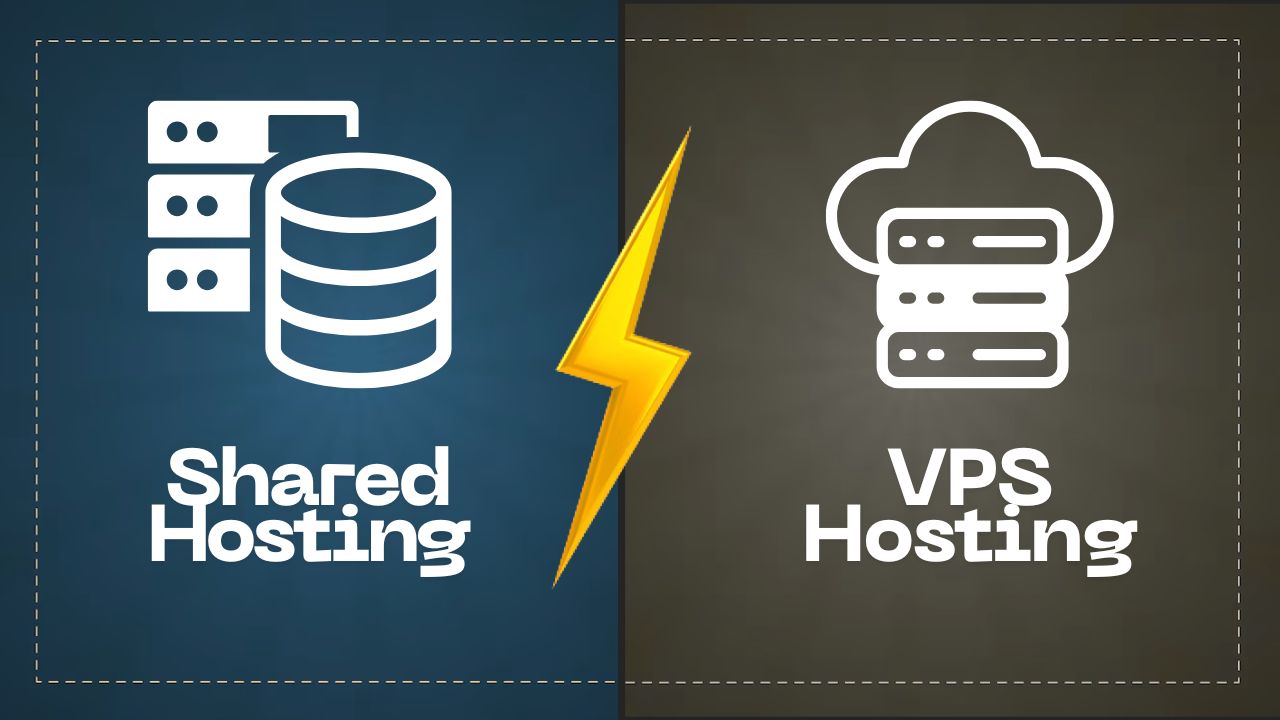
Shared Hosting vs VPS Hosting | Key Differences Explained
Title: Shared Hosting vs. VPS Hosting: Key Differences Explained
Blog Content:
When choosing a hosting solution for your website, two popular options often come up: Shared Hosting and VPS Hosting. While both can get your website online, they differ significantly in terms of performance, control, cost, and scalability. Understanding these differences is crucial for selecting the right hosting plan for your needs. In this blog, we’ll break down the key distinctions between Shared Hosting and VPS Hosting to help you make an informed decision.
What is Shared Hosting?
Shared Hosting is like renting an apartment in a building where multiple tenants share the same resources. In this model, a single server hosts multiple websites, and resources like CPU, RAM, and storage are shared among them. It’s the most affordable hosting option, making it ideal for small websites, blogs, or startups with low traffic.
Key Features of Shared Hosting:
- Cost-Effective: Shared Hosting is budget-friendly, often costing just a few dollars per month.
- Ease of Use: It’s beginner-friendly, with hosting providers managing server maintenance, updates, and security.
- Limited Resources: Since resources are shared, high traffic to one website on the server can slow down others.
- Less Control: Users have limited access to server settings, as the hosting provider controls the environment.
What is VPS Hosting?
VPS (Virtual Private Server) Hosting is like renting a private condo within a larger building. The server is divided into virtual compartments using virtualization technology, giving each user dedicated resources and greater control. VPS Hosting is suited for growing websites, e-commerce platforms, or businesses needing more power and flexibility.
Key Features of VPS Hosting:
- Dedicated Resources: You get allocated CPU, RAM, and storage, ensuring consistent performance regardless of other users.
- Greater Control: Users can customize server settings, install software, and configure the environment to their needs.
- Scalability: VPS plans are easier to scale as your website grows, allowing you to upgrade resources without downtime.
- Higher Cost: VPS Hosting is more expensive than Shared Hosting due to its dedicated resources and advanced features.
Key Differences Between Shared Hosting and VPS Hosting
- Resource Allocation
- Shared Hosting: Resources are shared among multiple websites, which can lead to performance issues if one site experiences a traffic spike.
- VPS Hosting: You get dedicated resources, ensuring stable performance even during traffic surges.
- Performance and Speed
- Shared Hosting: Performance can be inconsistent, as it depends on how many websites are hosted on the same server and their resource usage.
- VPS Hosting: Offers better speed and reliability since your resources are isolated and not affected by other users.
- Control and Customization
- Shared Hosting: Limited control over server settings, as the hosting provider manages the server for all users.
- VPS Hosting: Provides root access, allowing you to install custom software, tweak server configurations, and optimize performance.
- Security
- Shared Hosting: Security risks are higher because a vulnerability in one website could potentially affect others on the same server.
- VPS Hosting: Offers better security since your virtual server is isolated, reducing the risk of cross-site vulnerabilities.
- Cost
- Shared Hosting: Typically costs $3–$10 per month, making it the go-to choice for small websites or beginners.
- VPS Hosting: Ranges from $20–$100+ per month, depending on the resources and features provided.
- Scalability
- Shared Hosting: Limited scalability, as you’re constrained by the shared server’s capacity. Upgrading often means switching to a different hosting type.
- VPS Hosting: Highly scalable, allowing you to increase resources like RAM or CPU as your website grows.
Which One Should You Choose?
- Choose Shared Hosting if: You’re launching a small personal blog, portfolio, or a low-traffic website and want an affordable, easy-to-use solution. It’s perfect for beginners who don’t need advanced control or high performance.
- Choose VPS Hosting if: You run a growing business, e-commerce site, or a high-traffic blog that requires reliable performance, scalability, and customization. It’s ideal for users with technical knowledge or those willing to invest in better performance.
Both Shared Hosting and VPS Hosting have their place in the hosting world, but the right choice depends on your website’s needs, budget, and technical expertise. Shared Hosting is a cost-effective starting point for small sites, while VPS Hosting offers the power and flexibility needed for growing or resource-intensive websites. Evaluate your traffic, performance requirements, and long-term goals to decide which hosting type suits you best.
By understanding these differences, you can confidently choose a hosting plan that sets your website up for success. Have questions about hosting or need help choosing? Let us know in the comments!